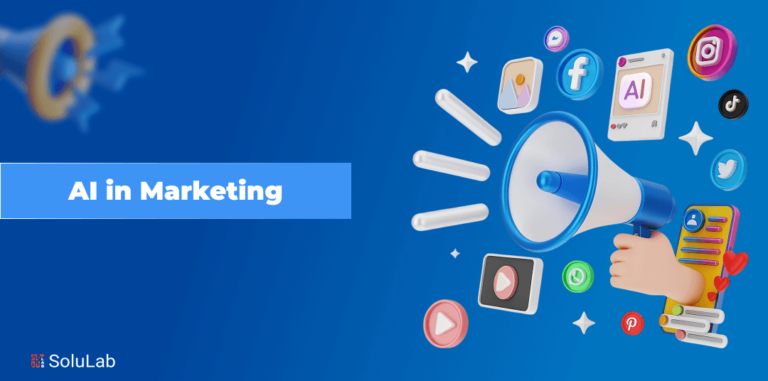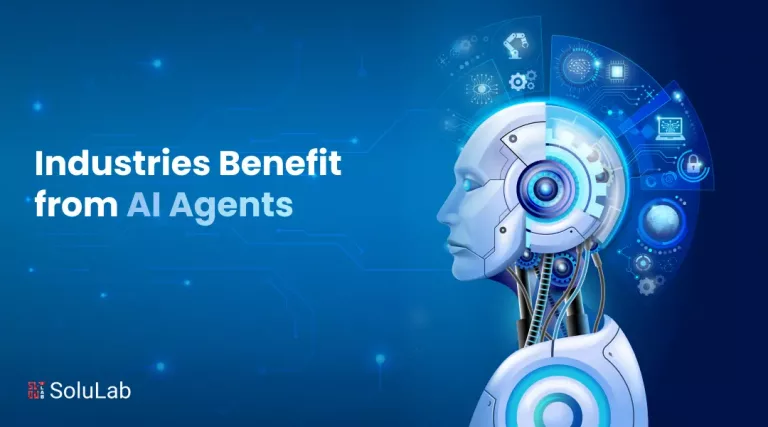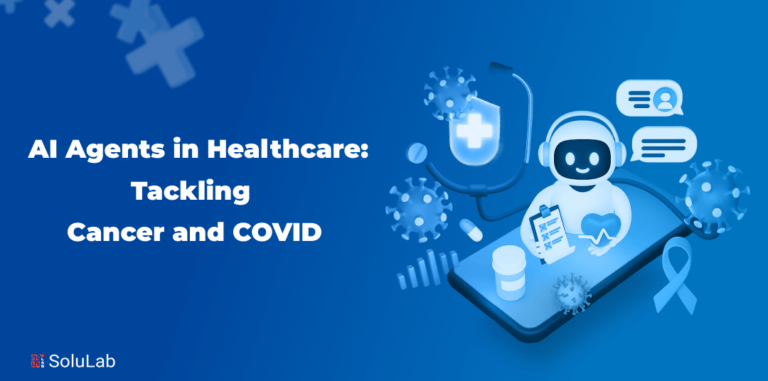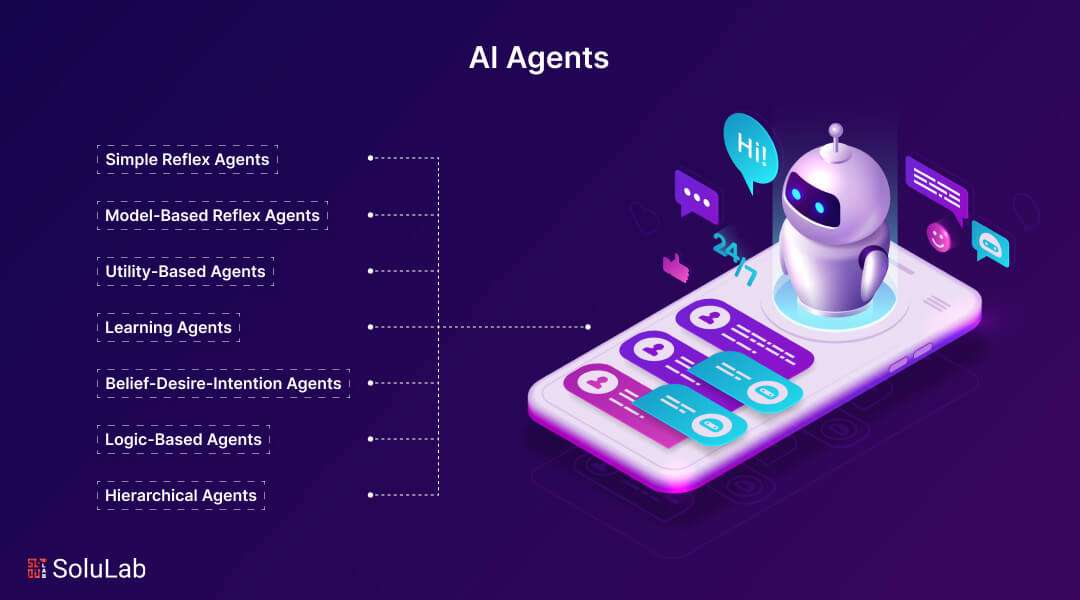
The global AI market is experiencing exponential growth, with a projected valuation of around $594 billion by 2032, significantly higher than the $136.55 billion recorded in 2022. This surge is driven by the increasing adoption of AI agents in various sectors, particularly in customer service, where 54% of companies now employ conversational AI. AI agents have upgraded customer service, providing efficient and cost-effective solutions to businesses. They can handle a wide range of tasks, from simple automated responses to complex problem-solving, across various environments, including websites, mobile apps, and social media platforms.
AI agents leverage advanced technologies such as machine learning and natural language processing to interact with their environments. Machine learning enables AI agents to learn and improve over time, while natural language processing allows them to understand and respond to human language. These techniques enable AI agents to provide personalized and intuitive interactions, enhancing user satisfaction. The future of AI holds immense potential, with continuous advancements in technology and an expanding range of applications. As AI becomes more sophisticated, it is likely to play an even more significant role in changing industries and transforming society.
Explaining AI Agents in Simple Words
Imagine a self-driving remote-controlled car, akin to an autonomous vehicle. Equipped with sensors and an intelligent system, this car can analyze its surroundings and determine the optimal path. Think of it as a potential movie plot, but let’s bring it back to reality. There are two key aspects to consider about what is an agent in AI:
- Its brain is programmed to follow a specific path and avoid obstacles.
- The more it drives, the better it becomes at following its path and avoiding bumps.
Different types of AI agents share similarities with this self-driving remote-controlled car. Instead of wheels, AI agents may utilize various tools such as screens, keyboards, cameras, and microphones. They operate on the same principle: sensing their environment, analyzing the information, and taking action to achieve a goal. Just as the remote-controlled car improves over time, AI agents also have the ability to learn and enhance their capabilities. It’s a fascinating concept, isn’t it?
In this context, artificial intelligence and intelligent agents play an important role in creating systems that can adapt and respond intelligently to their environments.
What’s the Working Principle Behind AI Agents?
In Artificial Intelligence (AI), an agent is a system that conforms to the PEAS model. This model encompasses four key elements:
1. Performance Measure: A metric that evaluates the AI agent’s effectiveness in accomplishing its objectives.
2. Environment: The external world with which the agent interacts, perceived through sensors.
3. Actuators: Mechanisms employed by the agent to influence and alter its environment.
4. Sensors: Methods for gathering information and data about the environment.
AI agents utilize various techniques such as machine learning, natural language processing (NLP), reasoning, and knowledge representation to perceive their surroundings, make informed decisions, and take actions that lead to the achievement of their goals.
Building on this foundation, let’s explore the different categories of AI agents and their unique characteristics.
The Types of AI Agents

Tasks and environments define the type of AI agent to use. We’ll explain each type in detail. However, here’s a quick glimpse of the types of AI agents:
1. Simple Reflex Agents
In Artificial Intelligence, simple reflex agents serve as the foundational and most comprehensible AI agent types. In essence, they act as instinctive reactors in the AI world.
The operational mechanism of simple reflex agents revolves around a continuous cycle of perception and action. Sensors gather environmental data, which is then compared against a comprehensive set of pre-programmed rules, akin to an extensive “IF…THEN…” list. Based on the matched rule, the agent executes a predetermined action.
While simple reflex AI agents possess certain strengths and limitations, let’s delve deeper into each aspect and explore AI agents use cases where they can be applied effectively.
Strengths:
- They stand out for their simplicity and ease of implementation.
- Simple reflex agents exhibit impressive speed and efficiency.
- These AI agents find their ideal application in well-defined environments.
Weaknesses:
- Their adaptability is inherently limited.
- Simple reflex agents lack the ability to learn and adapt from past experiences.
- These agents require a fully observable environment to operate effectively.
Examples
- Thermostat: Equipped with sensors, it monitors the room’s temperature and activates or deactivates the heating system to maintain a desired temperature range.
- Light Sensor in a Street Lamp: Detecting darkness, this sensor starts the street lamp to illuminate, ensuring visibility and safety during nighttime.
- Vending Machine: Featuring a user-friendly interface, the vending machine allows product selection through button presses. Once a button is pressed, the machine dispenses the chosen product, fulfilling customers’ desires.
These agents follow a predetermined set of condition-action rules to function. They respond to the perception at hand without taking past perceptions into account. They work well on jobs that don’t require a lot of skill and intricacy.
2. Model-based Reflex Agents
Model-based reflex agents incorporate an internal model of the environment, extending the capabilities of simple reflex agents. This model enables them to address situations where not everything is directly observable by sensors. Unlike simple reflex agents, which struggle in partially observable environments, model-based agents build an internal representation of the world based on past sensor readings. When a new situation arises, they consult this model to gain context and make informed decisions by utilizing their pre-programmed rules, highlighting what is an AI agent in the context of their advanced functionality.
Benefits:
- They can effectively operate in partially observable environments.
- Model-based agents exhibit greater flexibility.
- They leverage the internal model to predict environmental reactions to their actions.
Drawbacks:
- Increased complexity: Building and maintaining the internal model requires substantial effort.
- Performance heavily relies on the accuracy of the internal model, which can be challenging to achieve.
- Limited learning capabilities can hinder adaptation to engaged environments.
Examples:
- Self-driving cars: They utilize internal models of road networks, traffic lights, lanes, and potential obstacles to navigate safely.
- Robot vacuum cleaners: Advanced models use internal maps of the room to clean efficiently.
- Chatbots (with context awareness): Chatbots maintain an internal model of the conversation, enabling them to provide more relevant responses.
This AI agent types uses a more sophisticated methodology. They keep an internal model of the world and base their decisions on the knowledge contained in that model. They can now manage more difficult jobs because of this.
3. Goal-based Agents
Goal-based AI agents are designed with a specific objective in mind, actively planning their actions to achieve it. Their planning process involves examining a tree of possibilities, with each branch representing a potential action. They consider the consequences of each action and choose the one that brings them closer to their goal. Goal-based AI agents rely on knowledge representation to perform effective planning. This knowledge base stores information about the environment, their capabilities, and the relationships between actions and outcomes, highlighting the importance of artificial intelligence and intelligent agents in their functionality.
Advantages:
- They can adapt their behavior to different situations.
- These AI agents can handle environments with multiple possible outcomes.
- They have strong reasoning capabilities.
Weaknesses:
- The computational cost of planning algorithms can be high.
- Clearly defining goals is crucial for the agent’s success.
- If the agent lacks complete information about the environment, its planning may be flawed.
Examples:
- Robot path planning: Robots might use a goal-based approach to navigate around obstacles and reach a specific location.
- Game-playing AI: Chess programs and AI opponents in strategy games make decisions based on goal-based strategies to achieve victory.
- Navigation apps: These apps rely on goal-based algorithms to find the best route for users to reach their destinations.
Goal-based agents, a type of AI agents, achieve specific objectives in complex environments. They reason about their goals and actions, develop plans, and learn from experiences to improve performance. Well-suited for tasks requiring strategic thinking and adaptability, such as game playing, robotics, and healthcare.
Related: Agentic RAG
4. Utility-based Agents
Utility-based AI agents are an advanced form of goal-based agents, equipped to analyze outcome risks and comprehensively assess scenarios.
AI Agent Workflow: Utility-based agents evaluate various actions based on a utility function that assigns numerical values to each potential outcome, indicating how desirable it is for the agent. The agent aims to maximize its overall score by selecting actions that lead to outcomes with higher utility values. These utility based agents gather environmental information through sensors, consider potential actions, and predict outcomes for each action. The utility function assigns a score to each predicted outcome based on its desirability, enabling the agent to select the action that leads to the highest utility value, illustrating different types of AI agents with examples in various AI agent applications.
Benefits:
- Flexibility and adaptability to incorporate the agent’s preferences and priorities into decision-making.
- Ability to consider factors like risk, time, and effort when evaluating options.
Limitations:
- Complexity in designing the utility function.
- Computational cost associated with evaluating the utility of all possible outcomes.
- Degree of uncertainty surrounding the outcomes.
Examples:
- Recommendation systems predict user enjoyment by assigning utility scores to products, movies, or music.
- Self-driving cars use utility functions to consider safety, efficiency, and passenger comfort in decision-making.
- Hybrid AI approaches combine various methodologies to enhance decision-making processes.
- Trading robots evaluate investment options and trading decisions based on maximizing ROI through utility functions.
These agents weigh the anticipated benefits of every option before making a choice. They are frequently used in circumstances where it’s critical to consider several possibilities and choose the one that will most likely be useful.
5. Learning Agents
Learning agents, the pinnacle of AI agent categories, possess the remarkable ability to learn and adapt their behavior through interactions with their environment. Composed of specific components, including the learning element, criticism, performance element, and knowledge representation, these agents work cohesively to deliver exceptional results. Components and Functions of Learning Agents include various AI agent examples that highlight their capabilities and applications in real-world scenarios.
- Learning Element: This component processes new information, continuously updating the agent’s knowledge and decision-making strategies.
- Critic: The critic evaluates the agent’s performance, providing feedback on how well it meets its goals.
- Performance Element: Based on the agent’s current knowledge and the critic’s feedback, this element selects actions for the agent to take in its environment.
- Knowledge Representation: This component stores and organizes information about the environment and the agent itself, enabling efficient processing and decision-making.
Benefits:
- Adaptation and Improvement: Learning agents continuously enhance their performance, adapting to new situations and environments with ease. This process exemplifies the concept of Adaptive AI, enabling them to modify their responses based on past experiences.
- Complex Task Handling: They are capable of handling intricate tasks, making them valuable in various domains.
- Real-World Applicability: Learning agents have practical applications in areas such as virtual assistants, spam filters, and self-driving cars.
Drawbacks:
- Data and Time Requirements: Learning agents require substantial amounts of data and time to achieve optimal performance.
- Balancing Exploration and Exploitation: Striking a balance between exploring new avenues for learning and exploiting existing knowledge for effective performance can be challenging.
- Decision-Making Transparency: Understanding the reasoning behind a learning agent’s decisions can be complex due to the intricate nature of their learning algorithms.
Examples:
- Personal Assistants: Virtual assistants such as Siri and Alexa learn user preferences and voice patterns, providing increasingly specific responses over time.
- Spam Filters: Email filters employ machine learning to identify spam messages based on past examples.
- Self-Driving Cars: These vehicles rely on machine learning to enhance their navigation abilities, continuously improving their response to changing road conditions. Understanding the underlying AI agents architecture is crucial for developing these advanced systems.
These agents are made to function in uncharted territory. They gradually modify their behavior as they gain knowledge from their experiences. Neural networks and deep learning are frequently employed in the creation of learning agents.
Read Also: How Businesses in Every Industry Are Benefiting from AI Agents?
Functions Of An AI Agent
Artificial intelligence (AI) agents are increasingly becoming an integral part of our lives, carrying out various tasks from powering self-driving cars to assisting us in managing our finances. Artificial intelligence, what is an agent in AI, and intelligent agents are designed to mimic the cognitive processes of humans, allowing them to perceive their environment, process information, reason and make decisions, take actions, and learn and improve over time.
1. Perceive the Environment
AI agents are equipped with sensors that gather information about their surroundings. These sensors can include cameras, microphones, web search functions, or any other sensor modality relevant to their task. This information is then processed to extract meaningful data. For example, a self-driving car might use cameras to detect other vehicles, pedestrians, and traffic signs. Additionally, AI agent in finance can use the similar sensors and data processing techniques to analyze market trends and make informed investment decisions.
2. Process Information
Once the AI agent has gathered information about its environment, it must process this information to make sense of it. This stage involves techniques such as image recognition, natural language processing, or simply analyzing sensor readings. For instance, a self-driving car might use image recognition to identify pedestrians and traffic signs and natural language processing to understand voice commands from the driver, which are all great AI agents examples in action.
3. Reason and Make Decisions
Based on their understanding of the environment and their programmed goals, AI agents employ reasoning algorithms to determine the best course of action. This step includes planning a sequence of actions, evaluating different options, or simply reacting to a stimulus based on predefined rules. For example, a self-driving car might use reasoning algorithms to decide when to accelerate, brake, and turn. These processes are common in various AI agents use cases, helping to optimize decision-making in real-time environments.
4. Take Actions
AI agents utilize actuators to influence the environment. These tools could involve robots moving their limbs, software programs generating text or recommendations, or any other action that achieves the agent’s goals. For instance, a self-driving car might use actuators to control its steering, brakes, and throttle, demonstrating the capabilities of an AI intelligent agent in real-world applications.
5. Learn and Improve
Certain types of AI agents can learn from their experiences and adapt their behavior over time. This learning process can involve techniques such as supervised learning, unsupervised learning, or reinforcement learning. For example, a self-driving car might use reinforcement learning to enhance its driving skills by learning from its mistakes.
Benefits of AI Agents for Businesses
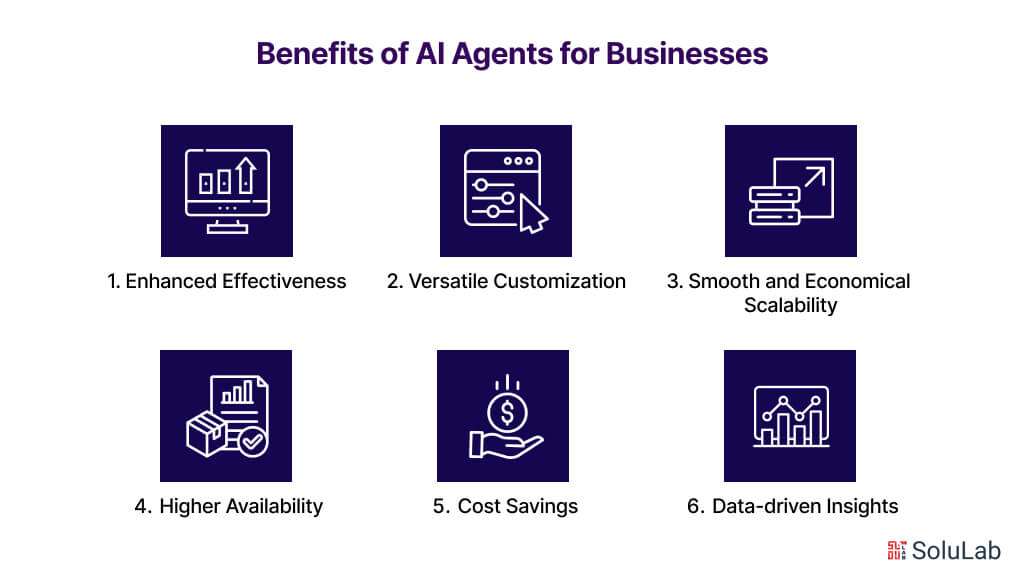
The use of AI agents in your company’s operations can have a number of benefits that have a big impact on your bottom line. Artificial intelligence (AI) agents are changing corporate operations by improving consumer experiences and operational efficiency. Additionally, it improves how companies thrive and compete in the contemporary economy. Building what is an agent in AI is crucial for businesses seeking to harness these benefits.
The following is a more detailed examination of the main advantages of using AI agents in the workplace:
1. Enhanced Effectiveness
Artificial intelligence (AI) agents are particularly good at tackling routine and repetitive activities that need a lot of time and human resources to complete. It covers duties including scheduling, data input, answering client questions, and simple analysis. Businesses can increase overall productivity by reallocating their human resources to more strategic and creative initiatives by automating these operations.
2. Versatile Customization
The capacity of AI agents to offer clients individualized experiences is one of its most notable qualities. By examining client information, preferences, and previous exchanges, AI agents are able to customize replies, recommendations, and services to each user’s specific needs. In the context of AI agents in HR, this degree of customization helps tailor employee interactions, improving satisfaction and engagement. Customers who receive this degree of customization feel understood and appreciated, which increases customer satisfaction and encourages loyalty and repeat business.
3. Smooth and Economical Scalability
AI programs are scalable by nature. They don’t require corresponding improvements in infrastructure or resources to meet a rising amount of jobs or interactions. This scalability is particularly beneficial because the need for resources might rise sharply during peak business seasons, new launches, or market expansions. Moreover, Conversational AI enhances scalability by enabling seamless interactions across various platforms without compromising performance.
4. Higher Availability
AI agents can work continuously without pauses, exhaustion, or downtime, in contrast to human employees. In today’s fast-paced industry, it is essential for organizations to be able to provide continuous service, support, or monitoring, and this is ensured by their 24/7 availability. However, it’s also crucial to implement responsible AI practices to ensure ethical and fair use of these technologies. AI agents are always available, so each time a consumer has a question, it can be quickly answered, enhancing their experience and happiness.
5. Cost Savings
Significant cost reductions can result from the use of AI agents. Businesses may save money on salaries, training costs, and other associated costs by eliminating the need for a big workforce to handle regular activities. Top AI agent development companies can help organizations implement AI agents to find efficiencies and optimize processes, which eventually lowers operating expenses even further.
6. Data-driven Insights
Large amounts of data can be effectively gathered and processed by modern AI agents. Consequently, companies using AI agents may learn important lessons about consumer behavior, industry trends, and operational effectiveness. By using these data, businesses may adjust their plans, make better judgments, and outperform the competition.
Workflows In AI Agents
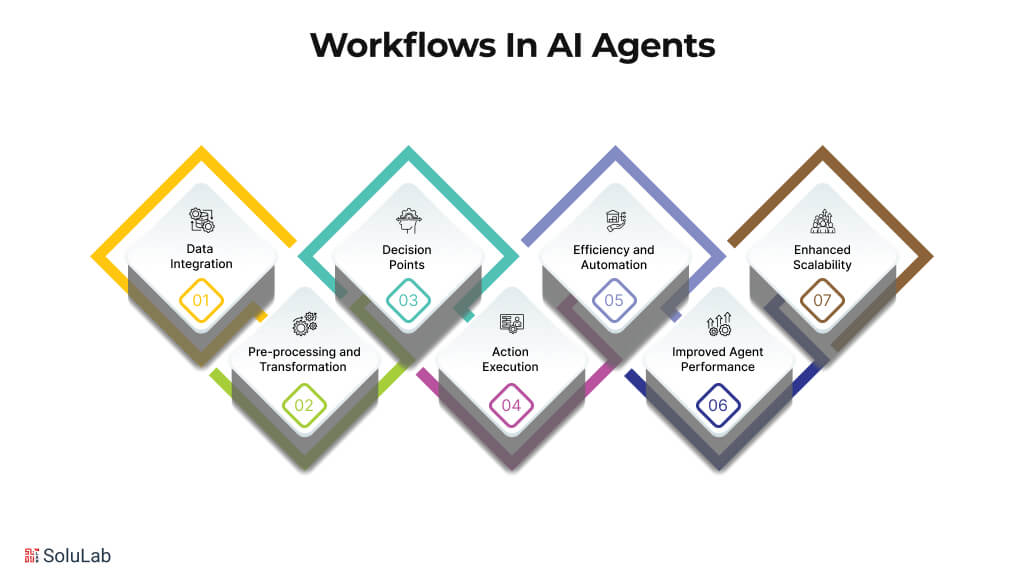
Workflows in AI agents refer to the structured processes that outline how agents carry out their tasks. These workflows serve as a roadmap for agents, ensuring that they take the necessary steps to reach their objectives while utilizing their capabilities seamlessly.
Key aspects of AI agent types workflows include:
- Data Integration: Workflows often begin with data integration from diverse sources such as sensor readings, user inputs, historical data, or any other information relevant to the agent’s assignment.
- Pre-processing and Transformation: Raw data may require pre-processing and transformation to make it comprehensible and usable for the agent. This may involve cleaning, filtering, or formatting the data.
- Decision Points: AI agent workflows frequently incorporate decision points where the agent leverages its capabilities to make informed choices, showcasing the essence of intelligent agent AI.
- Action Execution: Based on the decisions made, the workflow dictates how the agent takes action, which could involve sending control signals to robots or actuators, generating text or recommendations for users, or updating internal models or knowledge bases, leading to a clearer understanding of what is AI agent.
Workflows offer several benefits, including:
- Efficiency and Automation: Workflows streamline processes and enable automation, enhancing the overall efficiency of AI agents.
- Improved Agent Performance: Well-defined workflows contribute to improved agent performance by ensuring that agents operate consistently and effectively.
- Enhanced Scalability: Workflows facilitate scalability by enabling agents to handle increased workloads and adapt to changing environments, especially when you build AI agent system that is robust and adaptable.
Challenges of Using AI Agents
Incorporating AI agents brings forth substantial potential, but there are practical challenges to consider. This section explores some of the most pressing concerns.
- Data Dependence: AI agents heavily rely on data for training and functioning effectively. However, poor-quality data can lead to inaccurate results. Training complex types of agent often requires vast amounts of data, posing a challenge when acquiring sufficient data is costly or difficult. Additionally, using personal data for AI development raises privacy concerns.
- Explainability and Trust: Some AI models are opaque in their decision-making processes, making it challenging to understand how they arrive at specific conclusions. These agents AI can inherit biases from pre-trained data, potentially leading to discriminatory or unfair outcomes. For instance, a loan approval AI may show bias against a particular demographic.
- Technical Challenges: Training and running complex AI models can necessitate significant computational resources, making deployment and maintenance expensive. The best AI agent may also be susceptible to hacking or manipulation, emphasizing the need for robust security measures to prevent misuse. While some agents can learn and adapt, their reasoning capabilities are still evolving.
- Societal Consideration: The use of AI agents for automation can result in job losses in certain sectors. Moreover, the development and utilization of AI raise ethical questions, including bias, fairness, and potential job displacement. As AI capabilities advance, establishing robust regulations and control mechanisms becomes crucial to ensure responsible development and use.
SoluLab as Your AI Agent Development Company
In summary, AI agents represent an advancement in the field of artificial intelligence, offering autonomous solutions across a wide range of industries. From enhancing customer service with chatbots to automating complex tasks in healthcare, finance, and more, the benefits of AI agents are vast. By understanding the various types of AI agents, their key benefits, and their applications, businesses can use this powerful technology to drive innovation and improve efficiency.
We recently had the opportunity to assist Sight Machine, a leading AI-based company in the digital manufacturing space, in overcoming its resource challenges and expanding its product capabilities. Sight Machine sought expertise in generative AI and machine learning models to enhance their digital twins platform. Through our collaboration, SoluLab provided custom-made solutions, including scalable technical architecture design, generative AI model integration, and advanced analytics development. As a result, Sight Machine achieved real-time data integration, improved operational efficiency, and data-driven decision-making in manufacturing processes.
If you’re looking to build AI-driven solutions for your business, SoluLab can be your trusted AI Agent Development Company. With expertise in developing AI agents across various domains, we provide end-to-end services, from ideation to implementation. Whether you need custom AI agents for automation, customer service, or data analysis, we have the technical expertise to deliver solutions.
Ready to bring AI innovation to your business? Hire AI Developers from SoluLab to create intelligent, autonomous systems that drive success and efficiency.
Contact us today to begin your AI journey!
FAQs
1. What is an AI agent?
An AI agent is a system that perceives its environment and takes actions to achieve specific goals, often mimicking human-like behavior.
2. What are the types of agents defined in artificial intelligence?
There are several types of agents in AI, including simple reflex agents, model-based agents, goal-based agents, and learning agents, each designed for specific tasks and environments.
3. What are some examples of AI agents?
AI agents examples include virtual assistants like Siri and Alexa, self-driving cars, and recommendation systems used by online platforms.
4. How do intelligent agents AI differ from traditional software?
Intelligent agent AI systems can learn from their environment and adapt their actions based on experiences, whereas traditional software follows predefined rules without learning capabilities.
5. What is the architecture of AI agents?
The AI agent architecture typically includes components such as sensors for data collection, a knowledge base for information storage, and actuators for taking actions.
6. What is a utility-based agent?
A utility-based agent evaluates actions based on a utility function, which assigns numerical values to potential outcomes, allowing the agent to select actions that maximize its overall utility.




